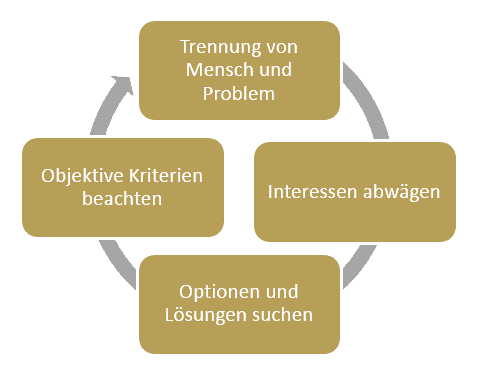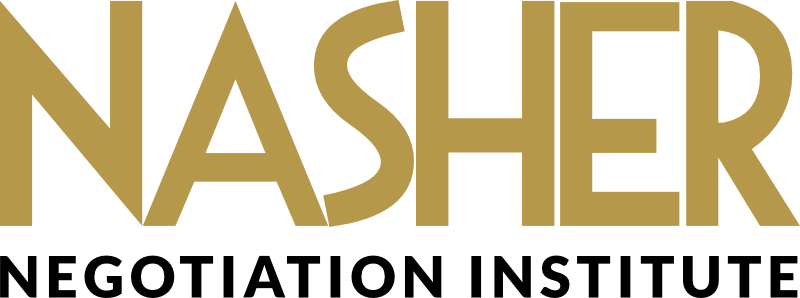The core of the Harvard method is quickly explained: Two sisters argue about an orange, it gets louder and louder and finally the mother intervenes and cuts the orange in half — a seemingly good negotiation solution. But a lose-lose situation, because each gets only half of what he actually wants. And what do they want? Well, one sister wants to squeeze a juice, but the other wants to bake a cake and needs the peel. As is so often the case in negotiating situations, the interests of the two do not contradict each other at all — all you have to do is ask!
Harvard concept means exploring interests
 And that is what is called the Harvard concept: the To find out the interests of the two negotiating partners, instead of focusing on the Negotiating positions to concentrate. After all, according to the Harvard method, positions are nothing more than Interests symptoms. Instead of rashly focusing on what I or the other person wants, we should take a step back and ask what is actually our interest behind it. And usually you will find many different positions on this. In the orange example of the Harvard method, both sisters would have 100 % of what they actually wanted. Admittedly, this is a situation that almost only occurs in sales seminars or negotiation training on the Harvard concept and rarely in reality. But it is just as rare in reality that everyone has to get only 50 %!
And that is what is called the Harvard concept: the To find out the interests of the two negotiating partners, instead of focusing on the Negotiating positions to concentrate. After all, according to the Harvard method, positions are nothing more than Interests symptoms. Instead of rashly focusing on what I or the other person wants, we should take a step back and ask what is actually our interest behind it. And usually you will find many different positions on this. In the orange example of the Harvard method, both sisters would have 100 % of what they actually wanted. Admittedly, this is a situation that almost only occurs in sales seminars or negotiation training on the Harvard concept and rarely in reality. But it is just as rare in reality that everyone has to get only 50 %!
Aggressive negotiation = lose-lose
When we are in our Negotiation training the seminar participants for Negotiation simulations into teams, we usually hear something like, “Well, who feels like losing today?” or, “We’ll do you all!” Such a negotiation strategy is like one spouse bragging about defeating the other at the wedding.
Aggressive negotiators, which is a Win-lose are not more successful because they cause the other party to block the deal. On average, they conclude only half as many deals as cooperative negotiators. And the negotiation deals they do reach bring them only the Half of the possible negotiation result one. In other words: If you negotiate aggressively, you will get 75 % less than you could!
Win-Win is not a compromise!
Countless negotiations are structured from the start in such a way that nothing but a bunch of lazy compromises can come out of it: Often the different negotiation points The reason for this is that the arguments are not put on the table at the same time, but are worked through according to a list — often by lawyers who, unfortunately, have not been trained in the Harvard method. Win-win is a term often used, but from our Negotiation training we know that almost no one understands what it actually means. Most see nothing here but the middle between two positions, that is, a compromise. Compromises but are subject to the completely false idea that our interests are incompatible with each other. In reality, however, every human being has different needs. To fathom these is the Key to the Harvard Concept and thus to true win-win!
At NASHER Seminar you will learn how to use the Harvard Concept methods in the best possible way. You will get to the bottom of each other’s interests and know how to Communicate interests optimally — without revealing too much at once. But the NASHER seminar goes beyond the Harvard method: because win-win is not possible with every negotiating partner. After the NASHER seminar, you will get the most out of even the toughest negotiating opponent, because you know the most effective psychological negotiation strategies -… sign up now!
If you liked this tip, share it with your friends and acquaintances on your favorite network.
